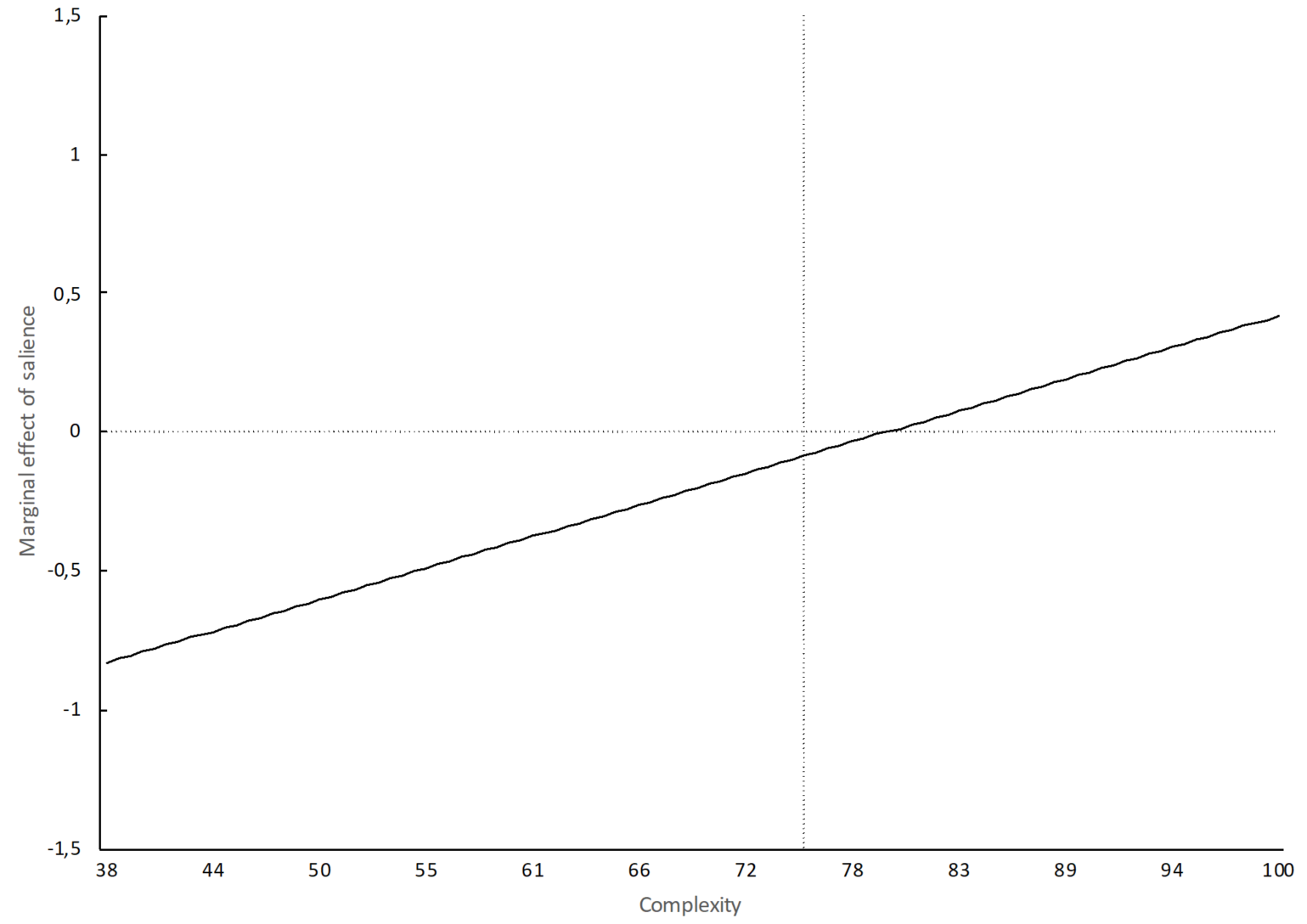
 Consulting individuals and groups who might be affected by a new policy is one of the cornerstones of democratic decision-making. However, such consultations can often suffer from a participation bias if actors require large levels of funding or expertise to play an active role in the process. Drawing on evidence from a new study, Maiken Røed and Vibeke Wøien Hansen illustrate the extent to which participation in EU online consultations is contingent on the salience and complexity of the policy issue being debated by the EU.
Consulting individuals and groups who might be affected by a new policy is one of the cornerstones of democratic decision-making. However, such consultations can often suffer from a participation bias if actors require large levels of funding or expertise to play an active role in the process. Drawing on evidence from a new study, Maiken Røed and Vibeke Wøien Hansen illustrate the extent to which participation in EU online consultations is contingent on the salience and complexity of the policy issue being debated by the EU.

Credit: © European Union 2018 – European Parliament (CC BY-NC-ND 2.0)
The European Union has implemented numerous actions to remedy its “democratic deficit”. One of these actions is the institution of online consultations. Participating in these consultations requires no invitation and no travel to Brussels. Instead, interest groups can easily access online consultations and choose to participate without fearing that someone else will take their spot if they decline an invitation to (for instance) an expert group meeting. This makes for an interesting case to investigate participation bias since access in online consultations is not only granted to selected interests.
In a recent study, we make the argument that policy issue characteristics, such as technical complexity and salience, can explain why some groups choose to participate in online consultations while others avoid clicking on the “submit” button. Like in all other participatory activities, the respective group seeks to find out what it stands to gain from participation. If clear benefits to participating are likely – i.e. the matter in question is highly salient for the group’s constituency and prominent on the policy agenda – participation bias is likely to be lower. By contrast, when the costs of participating are likely to be higher, in the form of more complex consultations, more biased participation patterns result. Furthermore, these two issue characteristics work in tandem. Groups weigh the costs (for instance paying consultants to answer technically difficult questions on their behalf) against the benefits (for instance showing their constituency that they are active and relevant on this policy issue).
This cost-benefit equation should be particularly evident in the case of highly salient proposals with low technical costs. In such scenarios, a greater variation of groups (and not only business interests with big budgets) might participate. This is low-cost participation on potentially controversial policy proposals. An example of such a salient proposal could be “Clean Transport Systems”, a package of initiatives that aim to dramatically reduce Europe’s dependence on imported oil and cut carbon emissions in transport by 60 per cent by 2050.
Our main argument is supported by an analysis of more than 350 online consultations. When an issue is highly salient but not particularly complex, consultations are likely to produce more representative policy proposals. On complex proposals, on the other hand, the participation is biased towards, for instance, business groups. This is illustrated by the figure below which shows the effect of salience on participation bias for different levels of technical complexity. The plot illustrates that salience reduces bias (bottom left of graph) only when complexity is below its mean value (shown by the vertical dotted line).
Figure: Marginal effect of salience on bias by levels of complexity
Note: The vertical dotted line shows the mean complexity value (75). For more information, see the authors’ accompanying article in the Journal of Common Market Studies.
Widespread participation from different interests on salient policy issues is thus mainly common when the legislation is less complex. This may not constitute a problem for democratic decision-making if the decision-makers take other measures to ensure a representative policy outcome.
Still, one of the Commission’s goals is for the consultations to be inclusive. Our findings indicate that to be able to achieve this goal, formally opening the consultations to everyone is not enough. If the matters they concern are technically complex, further action may need to be taken to incite wider participation and to avoid policy insiders from enjoying a privileged position in policy making. Since the Commission’s consultation document that is issued at the launch of a consultation usually provides more reader guidance for consultations on less complex issues, one potential option would be to always include such guidance.
By including more guidance and explicit questions in the consultation document when complex issues are raised, a more diverse set of groups may participate, in particular if the issue is salient. But with that said, we do think that the institution of online consultations is both modern and efficient, and can stimulate more participation among citizen groups with small or non-existing budgets that normally can’t meet the economic cost of gaining access to Brussels. The Commission’s online consultations have also paved the way for the recent launch of the EU online public consultation: Consultation on the Future of Europe.
For more information, see the authors’ accompanying article in the Journal of Common Market Studies
Please read our comments policy before commenting.
Note: This article gives the views of the authors, not the position of EUROPP – European Politics and Policy or the London School of Economics.
_________________________________
 Maiken Røed – Lund University
Maiken Røed – Lund University
Maiken Røed is a PhD candidate at Lund University.
–
 Vibeke Wøien Hansen – University of Oslo
Vibeke Wøien Hansen – University of Oslo
Vibeke Wøien Hansen is a postdoctoral researcher on the PAIRDEM project at the University of Oslo.






